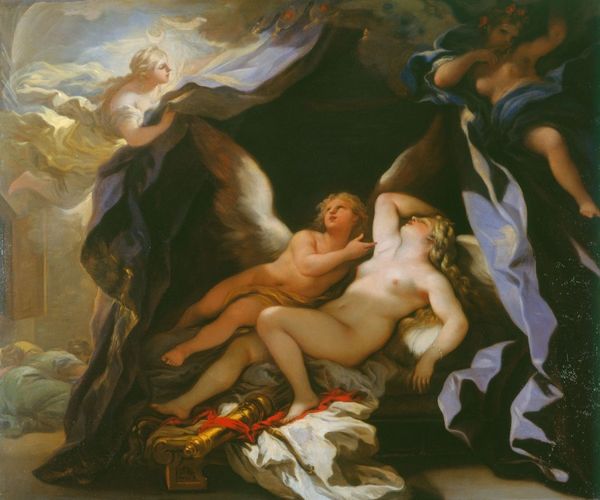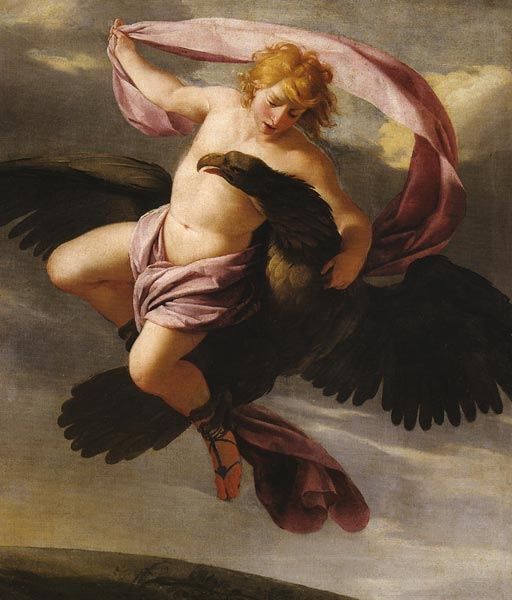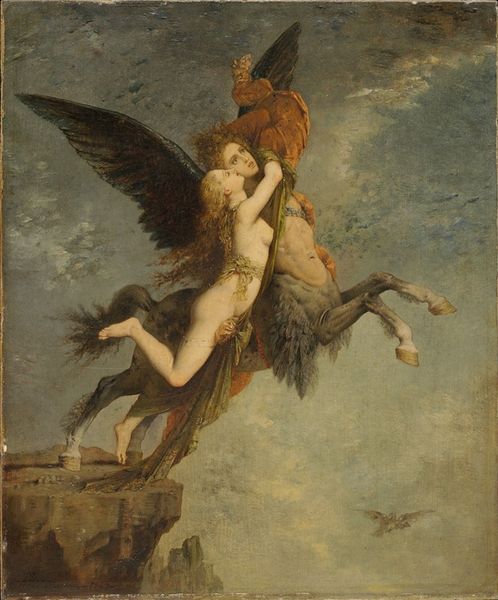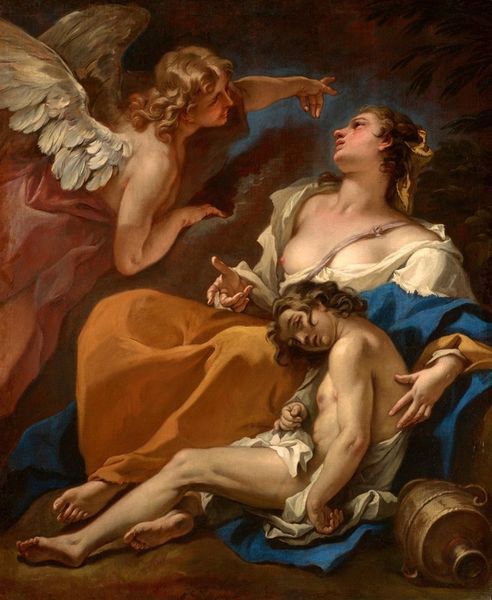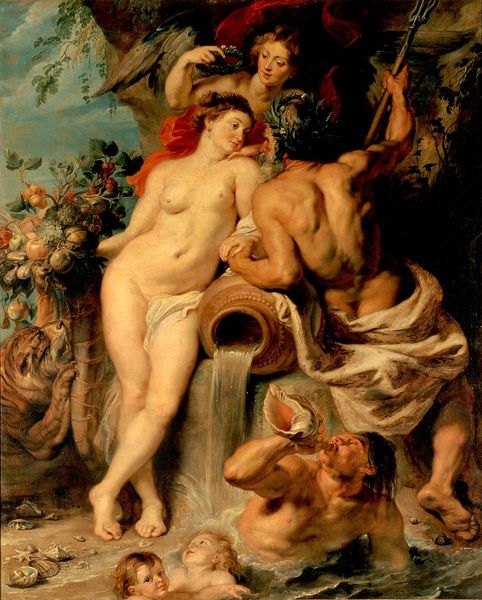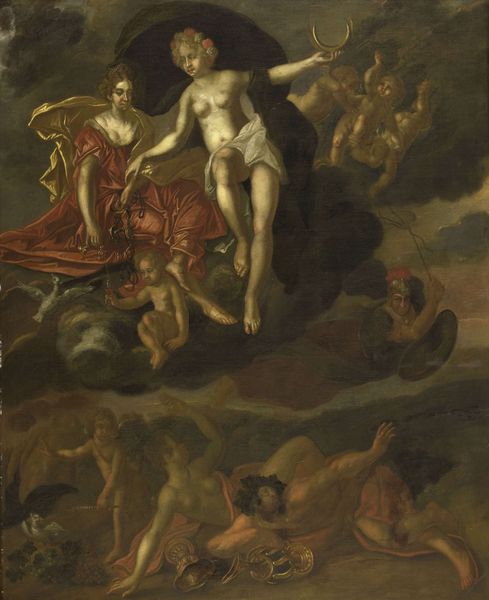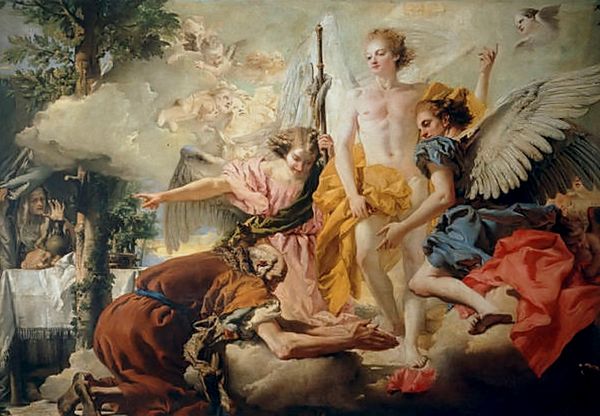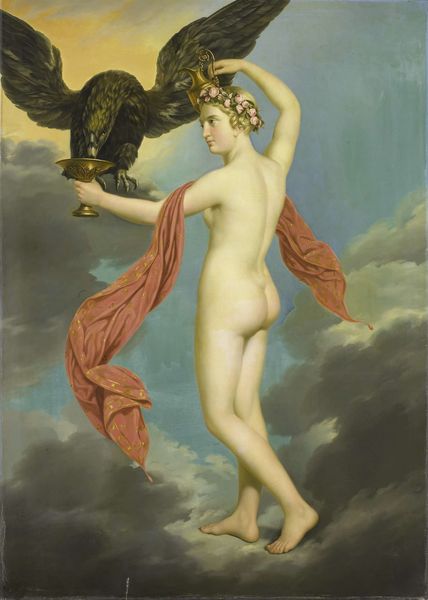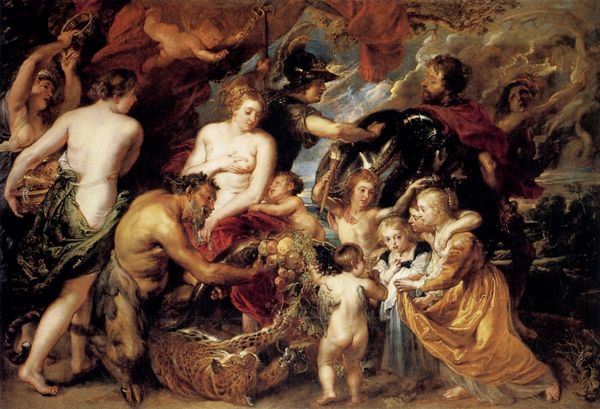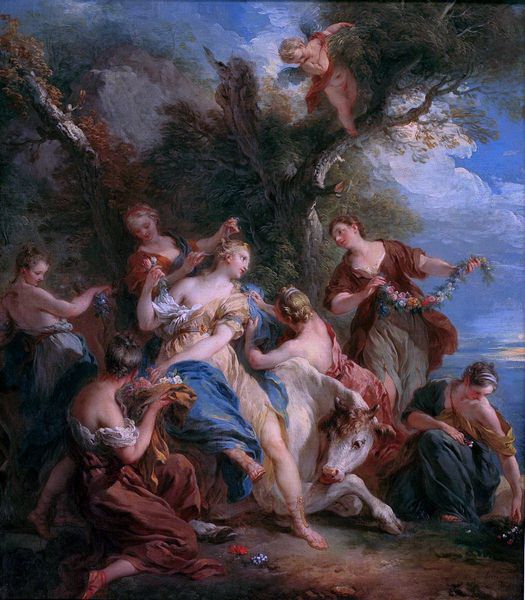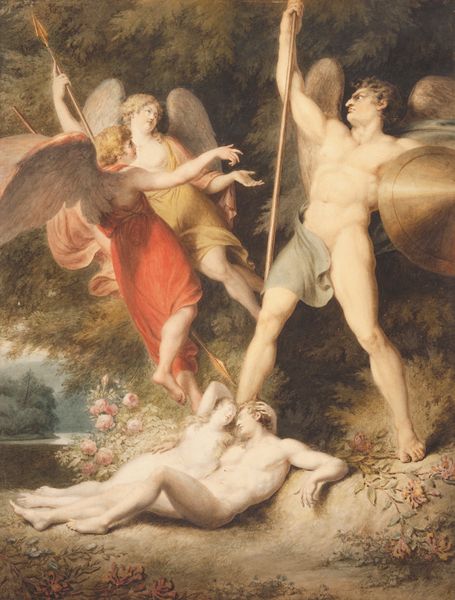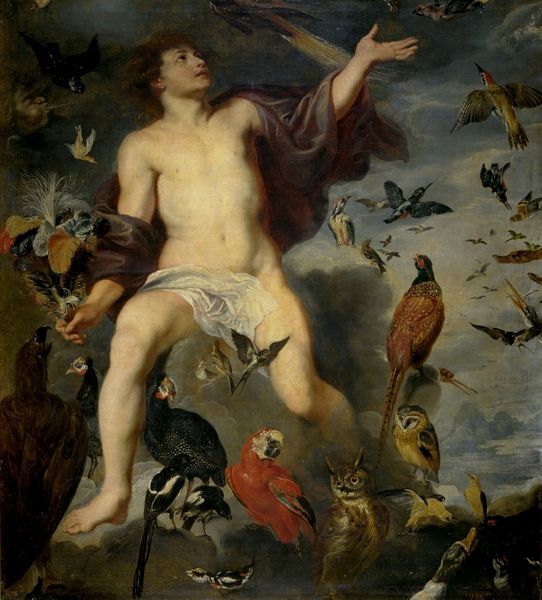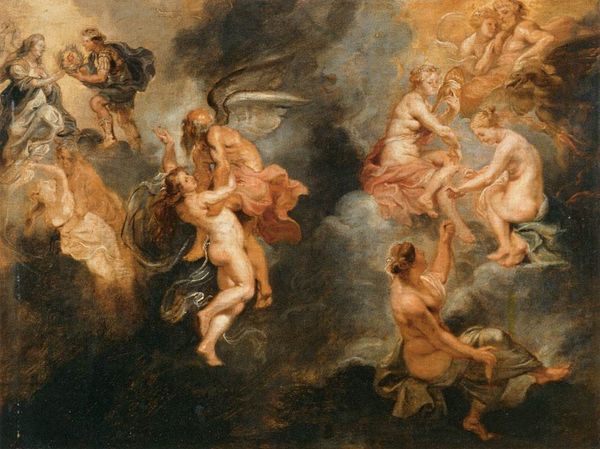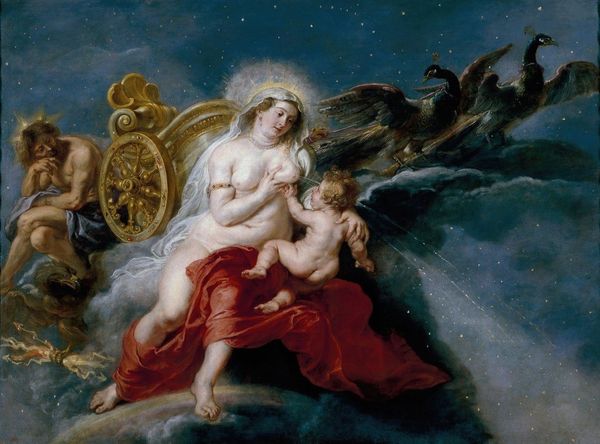
oil-paint
#
allegory
#
baroque
#
oil-paint
#
figuration
#
oil painting
#
neo expressionist
#
mythology
#
history-painting
#
nude
Dimensions: 203 x 203 cm
Copyright: Public domain
Peter Paul Rubens’ The Abduction of Ganymede, made with oil paint on canvas, depicts a scene of divine intervention and classical mythology. Rubens, in his workshop, likely began with preparatory sketches, followed by layering paint to build up form, texture, and color. The skilled application is evident in the way he created the sheen of skin, the soft wisps of hair, and the sharp details of the Eagle's feathers. The layering of paint creates depth and volume to the figures, from the youthful Ganymede to Zeus’s Eagle. The nature of oil paint, which involves labor-intensive pigment extraction and mixing, was a costly medium, and so indicates the affluence of Rubens and his patrons. The production of a painting of this scale speaks not only to Ruben’s artistic talent but also to the socio-economic context of the 17th century. This was an era in which artistic patronage reflected wealth and power, and a well-oiled workshop was a signifier of status, blurring the lines between art, craft, and commerce.
Comments
No comments
Be the first to comment and join the conversation on the ultimate creative platform.
